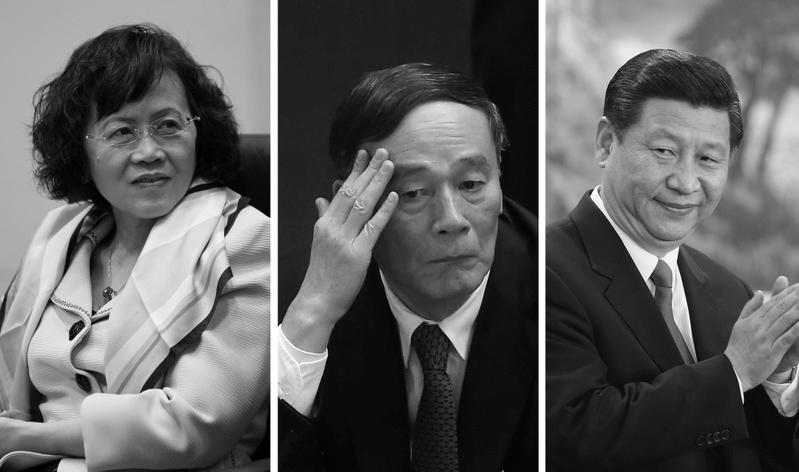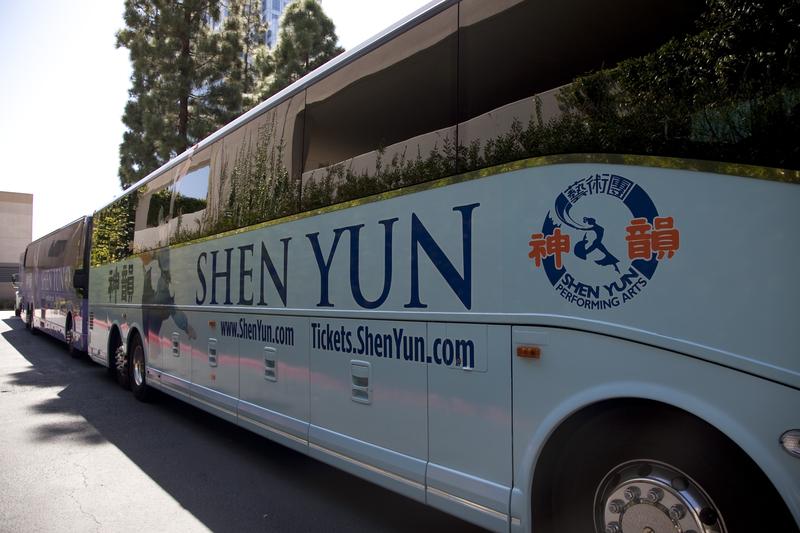One of China’s most powerful women, the media impresario Hu Shuli, has played a key supportive role in Chinese Communist Party leader Xi Jinping’s anti-corruption campaign since the beginning of this year.
The liberal magazine that she founded, Caixin, has acted as a weather vane on the political direction being taken by the top leadership, with lengthy and detailed investigative reports regularly presaging vigorous action by Party authorities against the officials and factions caught in the crosshairs of the new campaign. Most prominently has been Caixin’s reporting on a thorough cleansing of officials in the oil industry, and at the state-owned oil giant China National Petroleum Corporation (CNPC).
Ties With Top Leaders
Hu Shuli was dubbed the “most dangerous woman in China” by BusinessWeek, at the time the top editor of Caijing Magazine, which she founded in 1998. After 11 years, and amid controversy, she left to found the Caixin Media Company, in 2009.
Hu was listed among the top 100 influential people of 2011 by Time magazine, and was called China’s most powerful commentator by the Financial Times in 2006.
She also has close ties with Party leader Xi Jinping and Wang Qishan, head of Central Discipline Inspection Commission, the Party agency that investigates and punishes corrupt officials, according to a report by Hong Kong’s New Way Monthly magazine.
Hu’s ties to Xi can be dated back to 1985 when Xi was the vice mayor of Xiamen in Fujian Province, and Hu was a reporter stationed in the same city, the report said.
After Hu left Caijing, she quickly started a new company to publish a biweekly news magazine, which received support from then-Party secretary of Zhejiang—Xi Jinping—and the provincial Party newspaper Zhejiang Daily, according to the report.
Hu has been an acquaintance of Wang Qishan since 1988, when Wang was the manager of China International Trust & Investment Corporation, the report said.
According to a report by Asia Weekly in 2009, Wang stepped in to mediate when Hu decided to leave Caijing; afterward, with Wang’s support, China Reform magazine became a new addition to Hu’s newly formed Caixin Media Company.
Catching Corrupt ‘Tigers’
Caixin magazine’s cover story for its Sept. 9 issue was titled, “Cracking Down on Corruption and Catching Graft Tigers,” and featured extensive coverage of the arrests of four former China National Petroleum Corporation executives, and former CNPC chief Jiang Jiemin.
Most analysts agreed that former Politburo member Zhou Yongkang, who was the head of CNPC from 1996 to 1998, is the “tiger” on the loose. The term is used to refer to powerful corrupt officials. A WikiLeaks cable in 2009 said that China’s oil sector was controlled by Zhou and his associates.
On Sept. 25, Caixin published another report, which was soon taken down. It exposed the moves of the wife and in-laws of Zhou Bin, son of Zhou Yongkang, in the United States. It also said Zhou Bin was the former chairman of Beijing-based Zhongxu Yangguang Energy and Technology Ltd. Corp, whose largest client was CNPC.
Several overseas Chinese media said that Chinese authorities have already taken Zhou Bin into custody. Caixin’s report said Zhou Bin has returned to Beijing from overseas, implying that he is under house arrest.
Hu the Weather Vane
Because of Hu Shuli’s ties with top Party leaders, most analysts believe Caixin’s moves have been coordinated with other developments in the anti-corruption campaign.
New Way Monthly’s report said that articles like Hu’s are published with the tacit permission of top Party leaders—and with a wink and a nod from the Central Propaganda Department, which keeps the Chinese media on a tight leash. The reports also support a pattern the Chinese regime has, of shaping public opinion before taking down a top official.
On-Again, Off-Again
In late January this year, Xi Jinping said the Party needs to fight the “tigers” of corruption as well as the “flies.” Soon after, Wang Qishan presented the Central Committee with four large cases, including cases against two members of the last Politburo, according to an article written by Gao Yu, a senior reporter and commentator in Beijing.
But the four cases were met with fierce resistance from Party elders, including former Politburo member Zeng Qinghong and former Party head Jiang Zemin. Xi and Wang therefore had to shelve the “fighting tigers” plan, said Gao Yu.
Sources told Gao that in the Beidaihe meetings in August, Xi Jinping focused on anti-corruption and on specific cases that the Central Committee was preparing; after returning to Beijing, Xi said, due to the unique circumstances, Wang Qishan needs the “Shangfang sword,” referring to an imperial sword that can be used to execute malefactors. “We must have guts when it comes to anti-corruption, and we must get to the bottom of it regardless of whom we are investigating,” Xi added.
Sources also told Gao Yu that Xi’s proposal has already been adopted in a Politburo Standing Committee resolution. On Aug. 28, the Politburo endorsed a five-year plan for fighting corruption, said a report by Caixin.
Corruption as Purge
In the Communist Party, however, fighting corruption is often the name given to what are in reality political purges aimed at removing enemies and installing loyalists in key positions of power.
Under this view, Zhou Yongkang would make a suitable target because of his alliance with the former regime leader Jiang Zemin, and his ties with the deposed Politburo member Bo Xilai.
According to overseas Chinese media Mingjing News, Zhou Yongkang now has limited freedom because he is under investigation by the Central Discipline Inspection Commission. Xi Jinping is still weighing the matter, and has not signed the document to put Zhou under “shuanggui,” a Soviet-era style interrogation and detention of Party officials, Mingjing says.
The purging of Zhou’s interests in the oil sector, while appearing to eliminate those extracting rents, may merely be a ruse for installing Xi’s own people, according to He Qinglian, a Chinese economist and political observer. “The most they can do is appoint and remove top executives of state-owned enterprises. But this won’t change the pattern of vested interests taking hostage of the country.”


